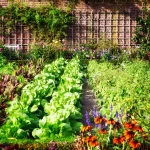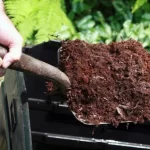
Whether you’re just starting to grow vegetables or you’re looking for ways to improve your existing vegetable garden, there are several different things to keep in mind. You want to be sure that you’re using the right kind of soil, and that you’re adjusting the structure of your soil as needed. You don’t want to make it too wet or too dry. You also don’t want to fill in the dirt too much. Instead, you want to leave some of the dirt alone, and you’ll need to use fertilizer.
Compost is the foundation of an organic vegetable garden
Adding compost to the soil of your garden will make it rich in nutrients. Compost is a natural, slow-release fertilizer that will give your plants the nutrition they need throughout the growing season. It can be purchased at a local gardening supply store or garden center.
The best type of compost is made from organic waste. Food scraps, yard waste, and other organic materials can be added to the compost to create a compost that is both beneficial to your garden and beneficial to the environment.
Using compost in the garden also helps to prevent weeds. A thick layer of compost can be used around vegetable seedlings to prevent weed seeds from germinating.
Adjust soil structure
Getting your hands dirty in the garden is great, but you need to have a little knowledge if you want to reap the rewards. For example, did you know that a well-balanced soil can produce the finest crop of vegetables and fruits? If not, do some research and see how your local horticultural society or gardening club can help you out. For instance, a visit to the local nursery or hardware store can reveal some of the secrets of the trade. This is especially true if you are new to the gardening game.
Besides the usual suspects, such as fertilizers and water, there are other facets of the garden to keep an eye on. For instance, it may be important to consider the best time to plant a new crop, which is usually a couple of weeks before the first frost of the year.
Fertilizer
Using organic vegetable garden fertilizer can help your plants grow and produce healthy harvests. These vegetable fertilizers are safe for humans and pets, and contain no harmful chemicals. They are also approved by the USDA for organic gardening.
In addition to being safe, organic vegetable garden fertilizer will boost the quality and size of your vegetables. Choosing the best fertilizer will depend on your specific needs and what ingredients are best for your soil. The best fertilizers contain a balanced N-P-K ratio to provide your plants with the nutrients they need to thrive.
There are two main types of organic vegetable garden fertilizer: liquid and granular. Both can be applied to your soil or around your vegetable plants. The liquid version is faster acting and can be a great help if your crop is in poor health.
Onions grow best on sandy loam
Choosing the best soil for organic vegetable gardening is an important factor in the success of your garden. The soil should be well-drained and have a good amount of organic matter. The pH of the soil should be neutral to slightly acidic.
Most onions grow best in well-drained, light, sandy loam with organic matter. They prefer a soil pH between 6.0 and 6.8. The soil should be fertile, with a good supply of phosphorous and nitrogen. In addition, onions should be planted in an area that gets at least six hours of direct sunlight a day.
The National Gardening Association recommends a fertilizer with a 5-10-10 formula. It should be applied in three applications throughout the growing season. The first application should be made 40-60 days after planting. The second should be applied in the middle of the season and the third in the last four weeks before harvesting.
Avoid wet soil
Generally speaking, the optimal time to test your soil is in the late fall or early winter months. There are several reasons for this. First of all, you will have the best chance of getting a decent sample. Second, your results will be more representative of your garden’s microclimate. This is particularly true if you are growing vegetables. Lastly, your efforts will be far more productive. Having a well drained and fertile soil is a must if you want to produce healthy and happy fruits and veggies.
When gardening organic vegetables, it’s important to keep in mind that the topsoil is a living and breathing organism. While this means you’ll need to maintain it, it also means you can make some adjustments to it in the process.











